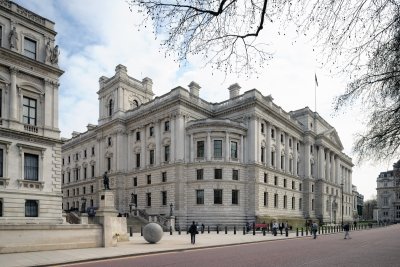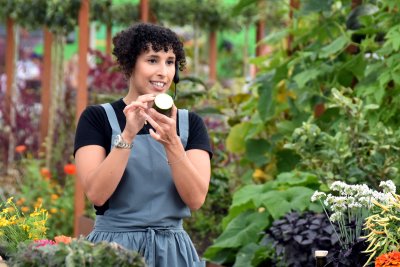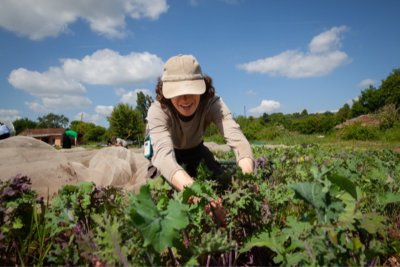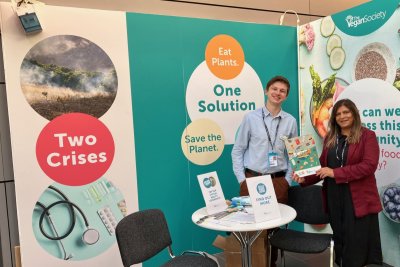 Treasury Building, Westminster, London. Copyright: godrick | iStock
Treasury Building, Westminster, London. Copyright: godrick | iStock

Spending Review 2025: what it means for farming, nature, children and health
Sustain was seeking from the Treasury a boost for three main areas: health, education, and environment and rural affairs. Did it deliver? We take a look.
Farming and nature
In our Spending Review submission in March we asked for the farming budget to be protected as a mission-critical resource for the environment. We also recommended measures to ensure fairness in the supply chain including the expansion and reform of the Groceries Code Adjudicator and call for the development of a Horticulture strategy.
Spending Review announcement, June 2025:
“This settlement maintains the government’s steadfast commitment to farming, food security, and nature’s recovery. The government will invest more than £2.7 billion per year in sustainable farming and nature recovery from 2026‑27 until 2028‑29. Farmers will benefit from an average of £2.3 billion through the Farming and Countryside Programme and up to £400 million from additional nature schemes. This will boost productivity and protect the natural ecosystems underpinning food production and broader economic activity, supporting food and economic security. This includes increasing support for nature-friendly farming through Environmental Land Management schemes from £800 million in 2023-24 to £2 billion by 2028‑29, sustained by rapidly winding down subsidy payments that do not provide a return on investment. This will make a significant contribution to the Environment Act targets, including improving the quality of water, air, and spaces for wildlife so biodiversity can thrive.”
Key points for farming:
The government has largely protected DEFRA’s core funding, with its total Departmental Expenditure Limit (DEL) falling by 0.7% in real terms over the Spending Review period.
This means that key policy delivery plans - including support for sustainable agriculture and nature recovery - are mostly maintained. However, DEFRA’s administrative budget, which covers staffing and internal running costs, will be cut by 15% in real terms by 2029-30 as part of broad government efficiency targets across all departments.
The spending review also reaffirms continued investment in Environmental Land Management (ELM) schemes, signalling ongoing support for a shift towards more nature friendly, resilient farming.
Will White, Sustainable Farming Coordinator at Sustain, said:
"This is a much-needed show of commitment for nature-friendly farming. The funding commitment for Environmental Land Management (ELM) schemes is a vital signal that the government recognises the central role of farmers in delivering climate action, restoring nature, and ensuring food security.
To make this investment deliver, DEFRA must ensure it translates into measurable outcomes and reaches farmers fairly, efficiently, and accessibly. Too many farmers face barriers to support, so additional investment in trusted, independent advice on the ground is critical.
But funding alone won’t deliver the farming transition we need. Farmers also require stronger supply chain regulation to secure a fairer share of profits- enabling them to invest in more nature friendly practices. A clear strategy is also needed to grow overlooked sectors like horticulture, which are vital to public health and food security.
We welcome this commitment - but delivery must now match ambition. The UK has a real opportunity to be a world leader in sustainable farming systems, but only if investment results in tangible change on farms."
Children's Food
In education, we want to see sustainable funding of healthy school food which would see a thriving school catering sector and a longer-term roadmap towards healthy, sustainable school food for all children from nursery to sixth form.
Spending Review announcement, June 2025:
"The government will provide £410 million per year by 2028-29 to expand Free School Meals eligibility to all pupils in England with a parent receiving Universal Credit. The government will also provide £80 million per year by 2028-29 for early years and post-16 settings to support this expansion. This supports parents and will lift 100,000 children out of poverty by the end of the Parliament, in decisive action as a downpayment ahead of publication of the Child Poverty Strategy in the autumn."
Barbara Crowther, Children’s Food Campaign Manager, said:
“We’re pleased to see investment in healthy food for children in this Spending Review, which confirms last week’s very welcome announcement to expand free school meals to children from families in receipt of Universal Credit. It also confirms support for the further development of primary school breakfast clubs. However, a note of caution is that is part of the core school budget - it is critical that funding for this expansion is sufficient to cover the full cost of food and logistics, and reflects the true price of ensuring healthy, sustainable food on pupils’ plates, and does not result in schools and councils having to raid other parts of their budgets to cover these.”
Health
In health, our submission included recommendations to make the household support fund an ongoing fund and increase the value of the Healthy Start allowance. We also recommended the Government build on the successes of the Soft Drinks Industry Levy and explore other potential financial levers that would incentivise further product reformulation and increase revenues for investment in children’s health. (See the more detailed submission from the Recipe for Change coalition).
Spending Review announcement, June 2025:
“The government is providing direct assistance to families most at risk of poverty through the Healthy Start scheme, and establishing a new Crisis and Resilience Fund supported by £1 billion a year (including Barnett impact) through the SR period to replace the Household Support Fund."
Key points for health:
Committing multi-year investment in the Crisis and Resilience Fund (formerly Household Support Fund) will mean local authorities can continue to plan and offer additional food support for vulnerable children and families, especially during school holidays.
The Spending Review mentions the value of Healthy Start, which is a vital programme supporting low-income families during pregnancy and with babies and children under 4 to access fruit, veg, milk and infant formula. There are no details, but we hope that the overall increase of investment in our health services can pave the way for strengthening uptake, access and the value of this scheme, as part of the government’s commitment to health and ensuring all children get the best start in life.
Sustain: Sustain The alliance for better food and farming advocates food and agriculture policies and practices that enhance the health and welfare of people and animals, improve the working and living environment, enrich society and culture and promote equity.
Sustain
The Green House
244-254 Cambridge Heath Road
London E2 9DA
020 3559 6777
sustain@sustainweb.org
Sustain advocates food and agriculture policies and practices that enhance the health and welfare of people and animals, improve the working and living environment, promote equity and enrich society and culture.
© Sustain 2026
Registered charity (no. 1018643)
Data privacy & cookies
Icons by Icons8







